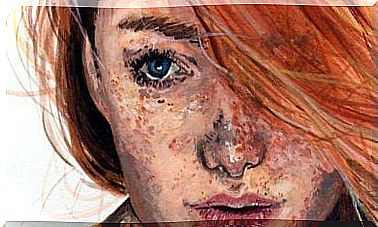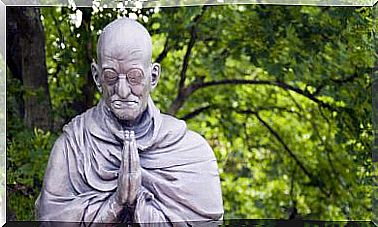The Art Of Paying Attention To What’s Really Important

Many people who come for a psych consult wonder when they started to stop enjoying the things they once enjoyed, why they became mere spectators of their suffering or instability. Our answer to these questions is that, in life, the circumstances we focus on occupy our attention and make us see and grow in that direction. The important thing is to pay attention, calm down and sharpen your hearing.
Choosing what we pay attention to is the foundation on which we fortify our pyramid. Paradoxically, it’s also one of the big forgotten aspects, as we spend half our lives with the autopilot on. Our environment demands a lot of attention from us, but we will see little if we don’t know how to focus our attention correctly.
It’s no use spending the day remembering what hurts us, as this only diverts our attention to an idea or situation that is not present. It’s no use focusing attention on what we think will happen, because even if it happens, it won’t be as we imagine. So, wouldn’t it be better to pay attention to what concerns us and what we can act on? Wouldn’t it be healthier to use our resources on something present and not waste them on assumptions or ideas?
It is known that our brain is responsible for creating 50,000 automatic and repetitive thoughts a day, and making them not occupy our attention is essential for them not to affect us. “The brain is always working, even if you’re sitting around doing nothing, and can be taught to act on our behalf” , he assured the theoretical physicist Jyri Kuusela, who works for the European Space Agency (ESA) and promotes the implementation of neurofeedback in Spain.
According to Elsa Punset, social intelligence guru: “We need to train our brain for the positive”. If we know this, why don’t we? To reprogram our brain, we have to start working on attention, or rather, working on good attention.

Don’t look back in anger or forward in fear, but look around carefully.
Doing one thing at a time means being whole in what you do, giving it your full attention. This action connects our attentions to where they are really useful and helpful for our body and mind.
The opposite is running on autopilot, not knowing what we’re doing while we’re doing it. Sometimes we disconnect from the present doing routine activities while wandering around another place and another time.
The benefits of working attention in the present are numerous, as several studies show. Training the mind to stay in the present moment without changing anything, with an attitude of openness and acceptance of reality as it is, causes significant structural and functional changes in the brain in areas associated with well-being and happiness.
Pay attention to what really matters
I read somewhere that if you want people to pay attention to what you say, you shouldn’t raise your voice, but lower it: that’s what really gets attention. It may be that sometimes we are not attracted to what is best for us, but to what we don’t know.
One of the things we all need to work on is knowing how to fix our attention on what is most useful and/or best for us, and not wander off into unreal struggles, or get lost in our thoughts while we let life slip away.

The doors of perception are open to everyone. In a world where education is predominantly verbal, people find it impossible to pay serious attention to anything but words and notions.
By taking control of our attention, we will avoid problems such as anxiety and depression, which take over our mind when we get stuck in the past, the uncertain and/or the external.








